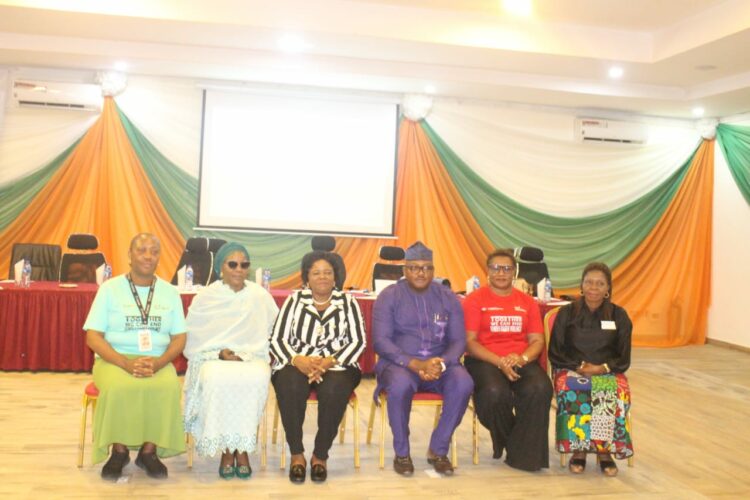A non-governmental organisation (NGO), the Widows and Orphans Empowerment Organisation (WEWE) has intensified efforts to advocate for the passage of critical bills aimed at protecting the rights and welfare of widows and orphans in Nigeria.
Part of this effort is the just concluded consultative meeting to review a draft bill which is sought to be passed in the National Assembly.
The event was themed “A Consultative Meeting to Review the Old Gender Bill (HB 342): A Bill for an Act to Establish a National Council for Public Assistance to Widows, Dependent Children, and Orphans and Related Matters,”
Speaking to newsmen yesterday in Abuja, a member of the 10th National Assembly representing Bama/Ngala/Kalabalge federal constituency in Borno State, Zainab Gimba emphasized the urgency of addressing these issues through legal reforms.
Gimba highlighted the need for robust frameworks to safeguard inheritance rights, property ownership, and the elimination of harmful cultural practices that disproportionately affect widows and orphans.
She noted that these longstanding challenges have left many marginalized and vulnerable to social and economic hardships.
The initiative, supported by Women for Women International-Nigeria, with funding from the Ford Foundation, and executed in collaboration with the office of the chairperson of the Women in Parliament Committee, reflects a collective determination to address these pressing concerns.
Acknowledging setbacks in the past, including the rejection of similar bills during the 9th Assembly, Hon. Gimba expressed optimism about the passage of the bill in the 10th Assembly.
“We are working closely with male colleagues, civil society organizations, and community and religious leaders to ensure these bills are passed. The current Assembly leadership has demonstrated unwavering commitment, and we are confident of achieving success this time,” she stated.
She further emphasized the importance of inclusivity and collaboration across all sectors to drive sustainable change. Organizations like Women for Women International- Nigeria, WEWE and the Ford Foundation were commended for their pivotal role in addressing the systemic and cultural challenges faced by widowed persons and orphans.
Hon. Gimba reiterated that this legislative push signifies a broader commitment to social justice and the protection of vulnerable groups. “This effort sets a significant precedent for tackling deeply entrenched societal issues and ensuring a brighter future for widows and orphans in Nigeria,” she added.
On her part, the vice chairperson of the Women in Parliament, Hon. Barr. Blessing Amadi, who also represented the speaker of the federal House of Representatives, reiterated her commitment to advancing the rights and protection of widows, orphans, and dependent children through legislative action.
She highlighted the urgency of addressing the challenges faced by vulnerable groups in society.
Hon. Amadi explained how international partners can collaborate with local community-based organisations (CBOs) to enhance and implement support systems effectively.
She noted, “In the house, we have committees exploring the possibilities of discussing this bill with foreign partners to enhance its advancement and implementation.”
Hon. Amadi emphasised the dire situations faced by widows and their children, citing cultural practices that often leave them dispossessed and vulnerable.
“We are passionate about the revival of our widows, orphans, and dependent children. When a woman loses her husband, some families exploit her vulnerability, forcing her into unwanted marriages or ejecting her and her children from their home. This must end.”
She revealed plans to pass and enforce a new bill that will provide comprehensive protections, including penalties for individuals who attempt to exploit widows, regardless of their status.
When asked about the inclusion of widowers in the proposed legislation, Hon. Amadi clarified that the term “widowed persons” ensures gender inclusivity. “We are reviewing the provisions to explicitly address widowers as well, so there will be no ambiguity. The bill must provide clarity and protection for all affected individuals,” she explained.
Also speaking at the event, Dr Olufemi Oke, representing the U.S. Center for Disease Control and Prevention (CDC), highlighted the plight of over 258 million widows worldwide. He emphasized the denial of inheritance rights, forced evictions, and separation from children as critical issues confronting widows globally.
“One in ten widows lives in extreme poverty,” Dr Oke stated, citing a report by UN Women. “These systemic barriers deny them access to financial resources like bank accounts and credit, leaving families vulnerable and economically unstable.”
The workshop underscored the urgent need for collaborative efforts to address these challenges and ensure vulnerable populations are not only protected but also empowered.











